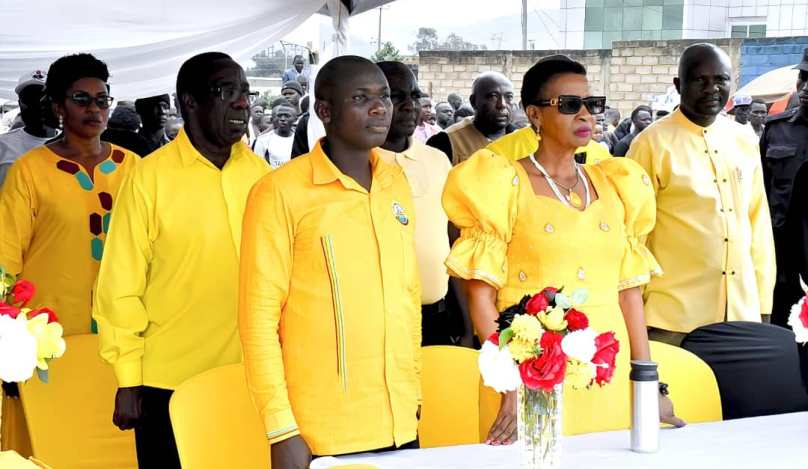Politics
Mubende’s Leadership Quagmire: When Personal Egos Eclipse Public Mandates

In the heart of Uganda’s central region, Mubende District, once a bastion of political synergy under the ruling National Resistance Movement (NRM), now teeters on the brink of dysfunction.
A deepening leadership rift among the district’s top officials, marked by public spats and unrestrained egos, has transformed the district from a model of unity into a cautionary tale of fractured governance
Tuning into a local radio station recently, I was struck not by policy discourse or development plans but by a public verbal duel between the District Chairman, Hon. Michael Ntambi, and Mubende Municipality Member of Parliament, Hon. Bashir Lubega Ssempa. The broadcast, meant for civic engagement, descended into a theatre of insults, accusations, and veiled threats. Allegations of sabotage, disrespect, and political elimination were hurled with reckless abandon—an unfortunate but recurring pattern that signals a broader institutional breakdown.
This is not an isolated incident. During the 2021 general elections, these very leaders stood side by side, united under the NRM banner. Their cooperation secured electoral victories across the district. Today, the same unity has withered into antagonism. The question is not just how we got here but what the implications are for the people of Mubende.
The timing could not be more ironic. The NRM Central Caucus is scheduled to hold a pivotal structural leadership engagement in Mubende. Yet, reports indicate that Hon. Ssempa—who is at the centre of organizing the event—remains at odds with fellow area MPs, including Kasambya County’s Hon. Kabanda Dauda and the District Woman MP, Hon. Hope Grania Nakaizibwe. At the core of the dispute lies more than just political differences; it’s about ego, hierarchy, and the pursuit of dominance. In one instance, Hon. Ssempa reportedly asserted his superiority in protocol and wealth over other district leaders—a proclamation that reflects a troubling prioritization of personal status over public duty.
One symbolic flashpoint was a letter Hon. Ssempa addressed to the district leadership. Rather than being treated as an instrument of collaboration, the letter became a point of contention. The District Chairman dismissed it as a mere notification, arguing that a formal address—rather than a carbon copy—was required due to the protocol of his office. What should have been a procedural matter instead morphed into a political insult.
This is not unprecedented in Ugandan politics. In 2013, there was a similar conflict in Luwero District between then-Woman MP Hon. Rebecca Nalwanga and LCV Chairman Ronald Ndawula that nearly cost the NRM its grip in the region. The discord paralyzed district development and created a vacuum that opposition forces quickly exploited. Likewise, in Busoga, longstanding divisions among district MPs fractured the vote and weakened regional bargaining power in Parliament.
Mubende can not afford to follow this trajectory. This moment demands an intervention measured, deliberate, and urgent.
As Chairman of the NRM and President of the Republic, His Excellency Yoweri Kaguta Museveni must treat this not as a minor district scuffle but as a potential breach in the party’s structural integrity. Reconciliation must replace rivalry.
The NRM Secretariat, under the stewardship of Rt. Hon. Richard Todwong should urgently commission a leadership audit and convene a reconciliation taskforce in Mubende. This task force should not be limited to party structures but must include civil society, interfaith institutions, and respected local voices. It is time to restore dialogue rooted in humility and responsibility.
Local governance thrives on collaboration, not intimidation. Political leadership is not a personal inheritance—it is a public trust. When elected officials repurpose their mandates for personal battles, the public loses twice: first in development and second in dignity.
The people of Mubende deserve functioning health centres, reliable infrastructure, and accessible education—not airwaves dominated by personality clashes and political shadowboxing. Leadership must mean service, not self-aggrandizement.
As a diplomate, I am offering myself to contribute to constructive peace-building or conflict transformation engagements aimed at realigning Mubende’s leadership towards a shared vision. The priority must remain clear: rebuild trust, restore order, and renew the social contract between leaders and the people they are elected to serve. Mubende deserves better. And Uganda deserves leaders who serve, not just rule.










